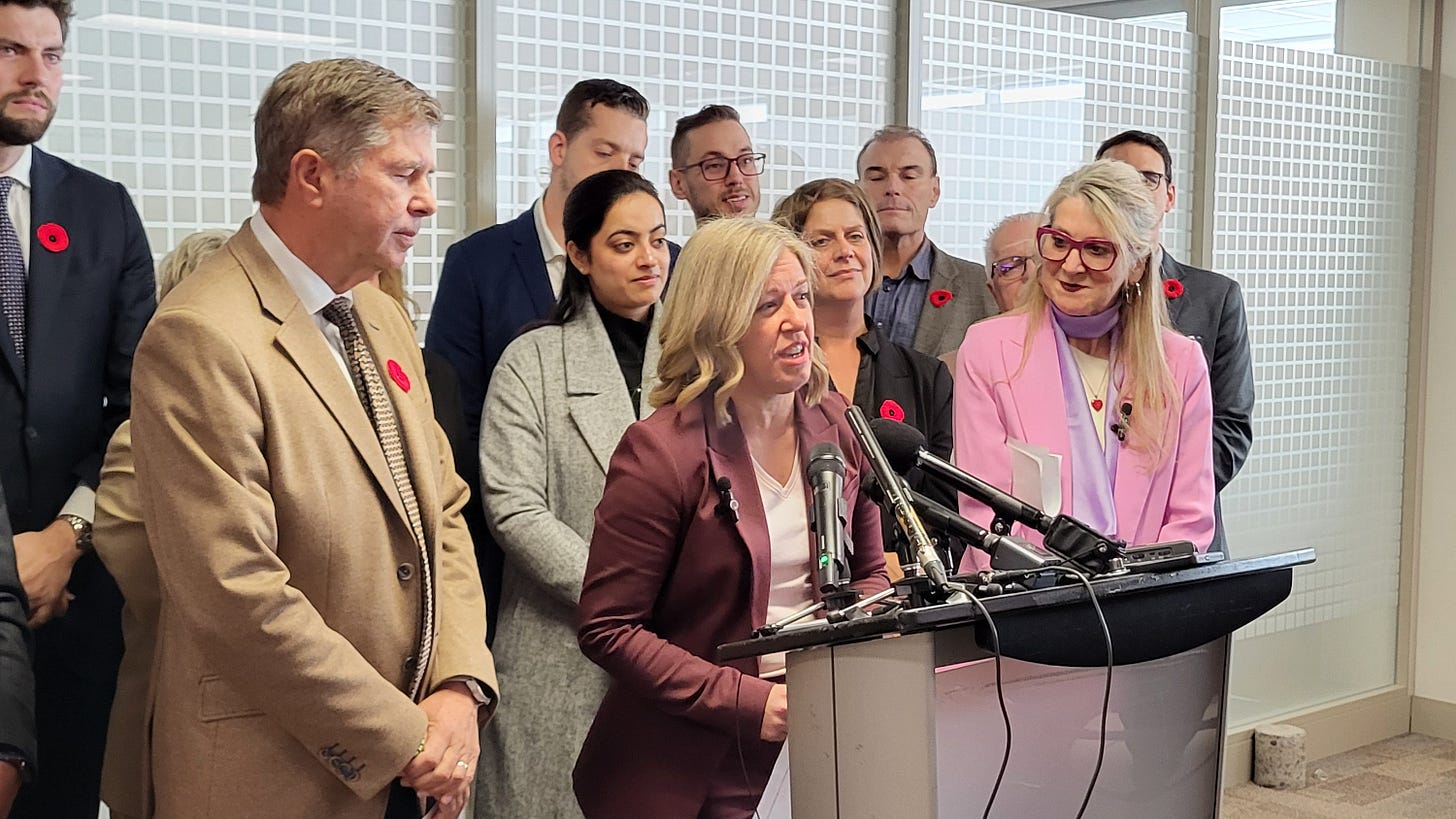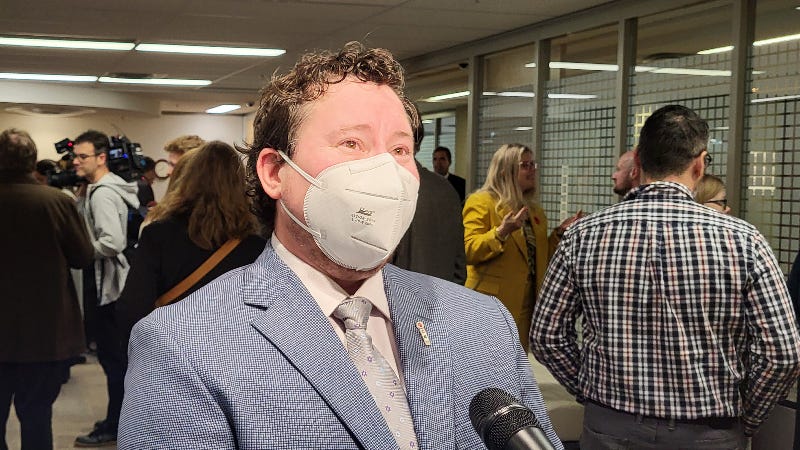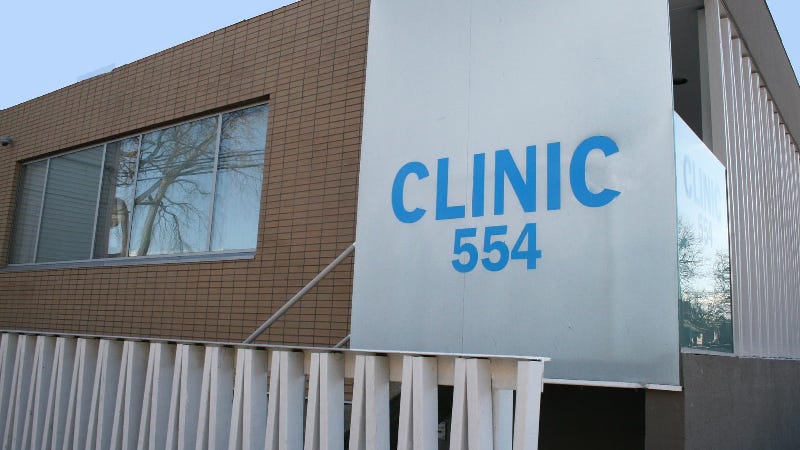Cabinet lifts N.B. abortion restrictions
Premier Susan Holt, cabinet struck Regulation 84-20 on Thursday, which precluded provincial funding for surgical abortions performed outside of select hospital settings
Access to abortion procedures are about to get much more accessible to girls and women in New Brunswick.
The recently elected Liberal government led by Premier Susan Holt struck Regulation 84-20 - which limited government-funded abortion procedures in New Brunswick to select hospitals - during a cabinet meeting Thursday morning.
“We believe that abortion is health care,” Holt told those gathered for a news conference over the lunch hour Thursday at Chancery Place in Fredericton.

The premier noted the repeal of the regulation is just the first step, as discussions will arise to determine at which other health-care facilities and which community clinics they’ll be offered.
“It’s 2024, and it’s Canada,” said Health Minister Dr. John Dornan. “We’ve come a long way.”
In 1803, legislation governing British colonies made abortion punishable by death, he said, and in 1985, the federal Health Act deemed abortion should be accessible as a service in Canada’s health-care system.
But New Brunswick’s restriction meant surgical abortions were only offered at three health-care facilities: the Chaleur Regional Hospital, the Moncton Hospital and the Dr. Georges-L.-Dumont University Hospital Centre.
Dornan said forcing a woman to drive hundreds of kilometres for a procedure and making her wait months for an appointment didn’t represent genuine access, and government has taken action to change that.
“Improved access to medical and surgical abortion is essential for equitable health care for all, and breaking down barriers is key to achieving it,” Lyne Chantal Boudreau, minister responsible for women’s equality, said Thursday.
Her office will play a role in facilitating efforts to improve that access now that cabinet has removed the regulatory barrier, she said.
Celebratory atmosphere
There was an air of celebration in the lounge outside the cabinet meeting room on the sixth floor of Chancery Place, as the province had invited several stakeholders on the abortion issue.
Among them was Dr. Adrian Edgar, who had operated Clinic 554 on Brunswick Street in Fredericton. He took over the Morgentaler Clinic back in 2015, and Clinic 554 provided privately paid and even pro-bono surgical abortions there up until January 2024.
Edgar told reporters he was elated, describing Thursday’s announcement as an historic moment for New Brunswick, bringing its abortion policies and access in line with those in other provinces.
Since the Fredericton clinic closed its doors, the doctor has busied himself with primary care services at Base Gagetown in Oromocto and as a senior physician on gender-affirming care on Prince Edward Island.
But with the repeal of Regulation 84-20, he said, he would look at resuming his previous role.

“I would definitely become a provider again,” Edgar said, noting he has a meeting set for Friday with the New Brunswick Medical Society to discuss that possibility.
“I think the capital region could really use these services.”
Reopening Clinic 554 in the same location likely wouldn’t be feasible, he said, as all of the necessary equipment has been removed.
Re-establishing such a community clinic wouldn’t happen overnight either, the doctor said, noting steps would have to be taken to ensure sufficient staffing with the proper training.
Furthermore, he said, he’d want to see discussions to ensure privacy and perhaps even protections for providers.
Harini Sivalingam, director of the equality program for the Canadian Civil Liberties Association (CCLA), was also among those who attended the historic announcement.
“We welcome this announcement,” she told reporters.
“This is a huge victory for the individuals and groups that have been fighting for reproductive justice.”
The CCLA has outstanding litigation against the New Brunswick government over restrictions to abortion access, but that could soon change, Sivalingam said.
The association’s legal team will need to review the impact of the regulation’s repeal on its lawsuit, she said, but it’s likely this development will achieve the ultimate goal of being sought: unfettered access.
“We expect this announcement will render our legal action moot,” Sivalingam said.
Andrée-Anne LeBlanc, executive director of the Regroupement féministe du Nouveau-Brunswick, said cabinet’s decision Thursday will have a profound and positive effect on reproductive justice in New Brunswick.
“For 17 years, our organization has been advocating for access to abortion and proudly highlights this first step to make surgical abortion more accessible throughout our province,” she said in a news release.
Still work to be done
Holt said the regulation’s repeal was a quick action her government wanted to take as soon as possible, but there’s still a lot more that needs to happen before its effects are felt.
Determining what additional hospitals and clinics will choose to offer surgical abortions will need to be hashed out, the premier said, but the intent is to ensure greater access geographically throughout New Brunswick.
Government will also need to develop education and communication plans to inform New Brunswickers where and how they can access abortions, both surgical and pharmacological, the premier said.
A government news release noted that two types of abortion services are available in the province: surgical procedures and medical abortions, which are a non-surgical alternative employing prescription medications, and the latter type accounts for most abortions in New Brunswick.

Government said the next step in improving abortion access in New Brunswick will be for the Department of Health to consult with stakeholders, such as the New Brunswick Medical Society and the regional health authorities, to establish how the additional services can be best delivered in the community.
When asked if government had calculated what expanding abortion access and funding additional procedures would mean in terms of costs to the province, Holt said, “Negligible.”
It costs less to deliver surgical abortion services in clinics in the community as opposed to hospitals, she said, and the health-care system will see savings in other areas with better access to this facet of health care.
Furthermore, the premier said, improved access is expected to result in improved outcomes for girls and women, which can mean less of a burden on other government services.
“We think this [provides] wide-ranging societal benefits,” Holt said.
Don MacPherson can be contacted at ftonindependent@gmail.com.




I don't think it is good news☹️
This is GOOD news. Healthcare options for women <3